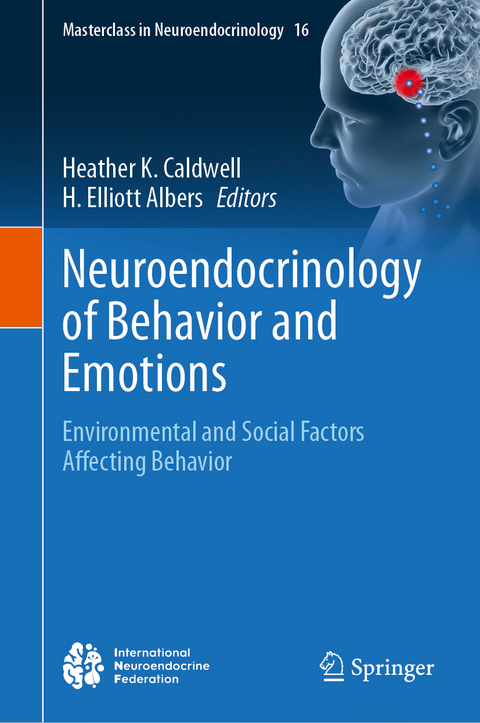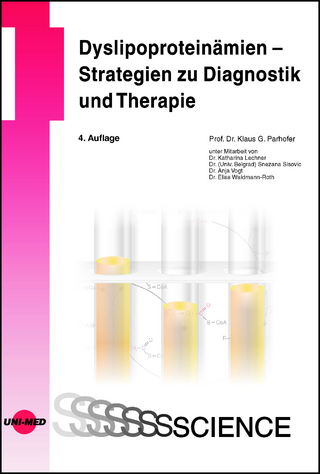
Neuroendocrinology of Behavior and Emotions
Springer International Publishing (Verlag)
978-3-031-51111-0 (ISBN)
This volume highlights current research on how the neuroendocrine system helps to influence emotional states and ultimately behavioral output.
Social relationships and context-appropriate behavioral responses are important for the survival of most vertebrate species. These relationships can range from transient social interactions to strong social bonding between sexual partners and social behaviors can be observed and evaluated from the individual- to the group-level. Further, behavioral output is shaped by complex interactions between the physical environment, genetics, experience, and context, and are often modulated by the neuroendocrine system.
In this book, experts in the field will provide a sweeping look at novel research in the neuroendocrine regulation of important behaviors ranging from parental care to social homeostasis, with a focus on comparative studies across vertebrate species. The first part of the book is dedicated to theneuroendocrinology of relationships, including the coordination of acoustic signals in songbirds, the complexity of social relationships in primates, and cooperation and parenting in humans. The second part of the book focuses on social behaviors and provides some insights into their regulation, including the neuroendocrine regulation of maternal behavior in rodents, the roles of oxytocin and vasopressin in the modulation of sex-specific social behavior, the interactions between adult neurogenesis, the neuroendocrine system and social behavior, and a consideration of neuroendocrine influences on reproductive decision making across species. The book concludes with a section on environmental influences on neuroendocrine systems underlying behavior, including how social isolation and endocrine disrupting chemicals affect the neuroendocrinology of behavior and emotions.
Given its breadth, this volume is appropriate for undergraduate students, graduate students, postdoctoral researchers, and established researchers who are interested in neuroendocrinology and behavior.
This is the sixteenth volume in the International Neuroendocrine Federation (INF) Masterclass in Neuroendocrinology series, which aims to illustrate the highest standards and highlight the latest technologies in basic and clinical research and aspires to provide inspiration for further exploration into the exciting field of neuroendocrinology.
Heather K. Caldwell received her B.A. and M.S. from the University of North Carolina at Greensboro and her Ph.D. from Georgia State University. She went on to work with Dr. W. Scott Young at the National Institute of Mental Health at the National Institutes of Health for her postdoctoral training. She is currently Professor and Chair of the Department of Biological Sciences at Kent State University. Her work has focused on the contributions of oxytocin and vasopressin to the neural regulation of behavior, both in early development and adulthood.
H. Elliott Albers received his B.S. from the University of Nebraska in 1974 and his Ph.D. from Tulane University in 1979. He did postdoctoral training at Harvard Medical School and the Worcester Foundation for Experimental Biology. After serving on the faculty of the University of Massachusetts Medical School, he joined Georgia State University in 1986. Currently he is the Director of the Center for Behavioral Neuroscience and Regents Professor of Neuroscience at Georgia State University. Dr. Albers' research program is focused on behavioral neuroendocrinology with studies focused on neurochemical signaling in brain circuits regulating social behavior and biological rhythms.
Part I. Social Relationships.- Chapter 1. Neuroendocrine Modulation of Coordinated Acoustic Signals.- Chapter 2. Adult Social Relationships in Primates.- Chapter 3. Neuroendocrinology of Human Cooperation and Parental Care.- Part II. Social Behaviors and their Regulation.- Chapter 4. Neuroendocrine Basis of Impaired Mothering in Rodents.- Chapter 5. Oxytocin, Vasopressin, and Sex Differences in Social Behavior. It's Complicated!.- Chapter 6. Adult Neurogenesis and Social Behavior: A Reciprocal Relationship.- Chapter 7. Neuroendocrine Mechanisms Underlying Reproductive Decision Making across Taxa.- Part III. Environmental Influences on Neuroendocrine Systems and Behavior.- Chapter 8. Oxytocin and Social Isolation: Nonapeptide Regulation of Social Homeostasis.- Chapter 9. Dirty Minds: How Endocrine Disrupting Chemicals (EDCs) and Other Pollutants Affect the Neuroendocrinology of Behavior and Emotions.
| Erscheinungsdatum | 26.03.2024 |
|---|---|
| Reihe/Serie | Masterclass in Neuroendocrinology |
| Zusatzinfo | XI, 253 p. 21 illus., 10 illus. in color. |
| Verlagsort | Cham |
| Sprache | englisch |
| Maße | 155 x 235 mm |
| Themenwelt | Geisteswissenschaften ► Psychologie ► Sozialpsychologie |
| Medizinische Fachgebiete ► Innere Medizin ► Endokrinologie | |
| Medizin / Pharmazie ► Studium | |
| Naturwissenschaften ► Biologie ► Humanbiologie | |
| Schlagworte | Bonding • endocrine disruption • gonadal steroids • mate preference • Oxytocin • parental behavior • Parental Care • reproductive decision making • Social behavior • Social Environment • social homeostasis • Social Relationship • Vasopressin |
| ISBN-10 | 3-031-51111-5 / 3031511115 |
| ISBN-13 | 978-3-031-51111-0 / 9783031511110 |
| Zustand | Neuware |
| Informationen gemäß Produktsicherheitsverordnung (GPSR) | |
| Haben Sie eine Frage zum Produkt? |
aus dem Bereich


